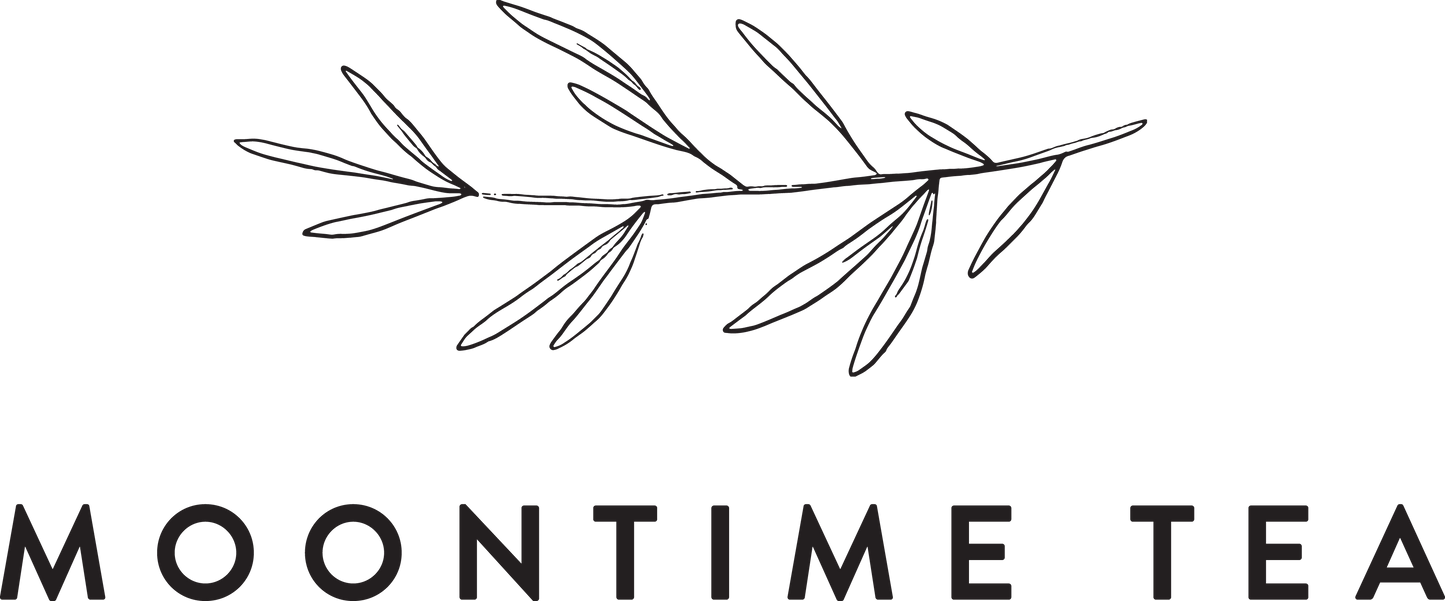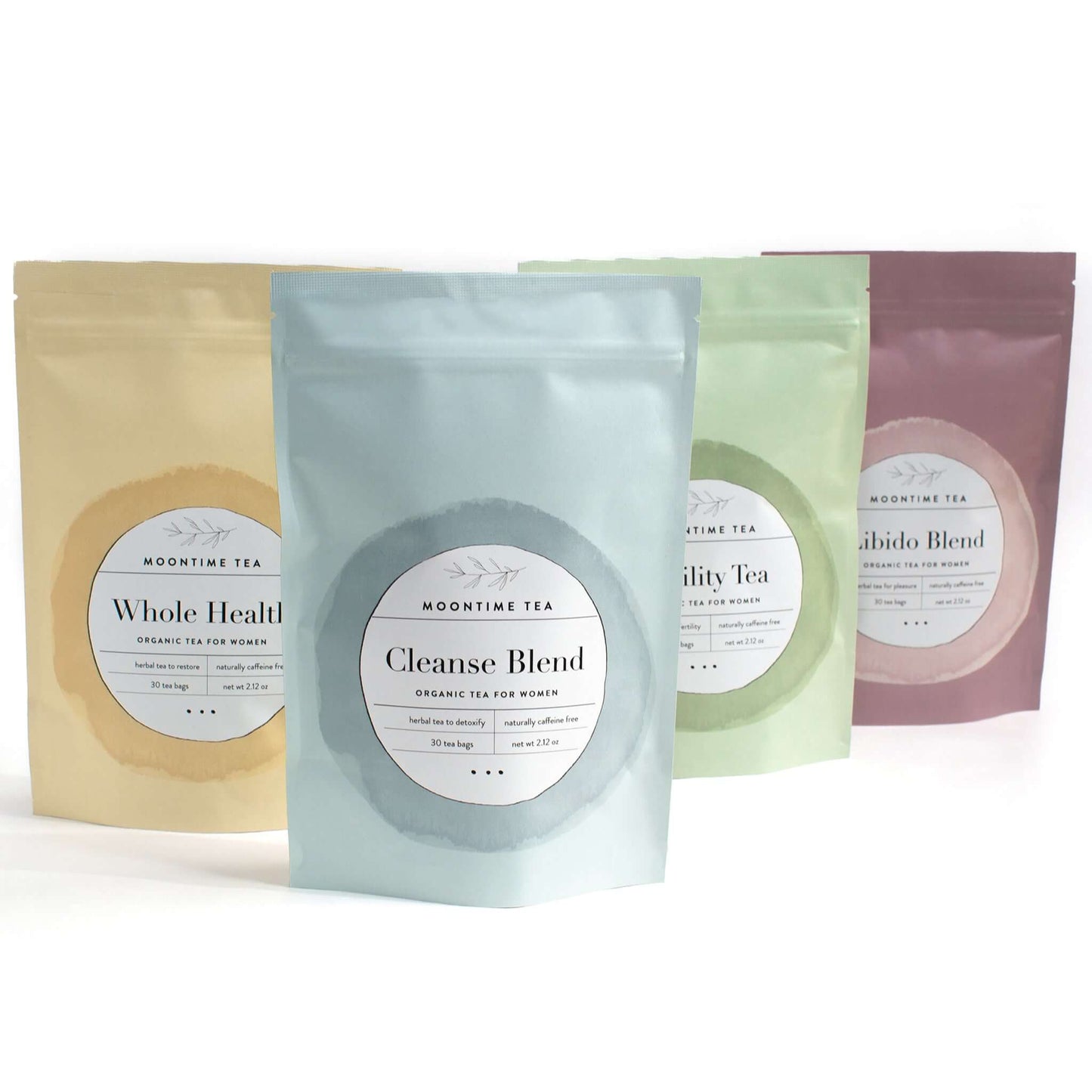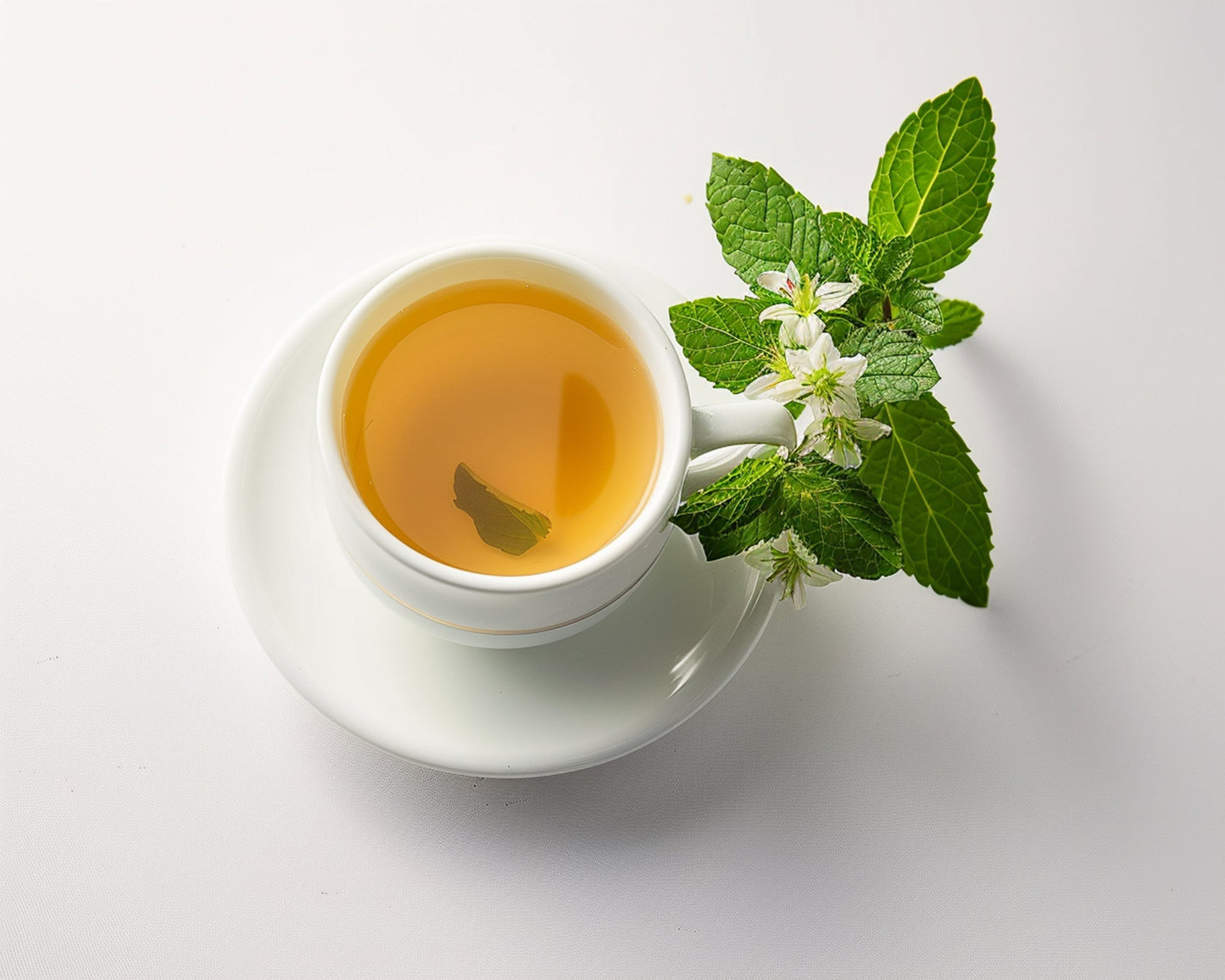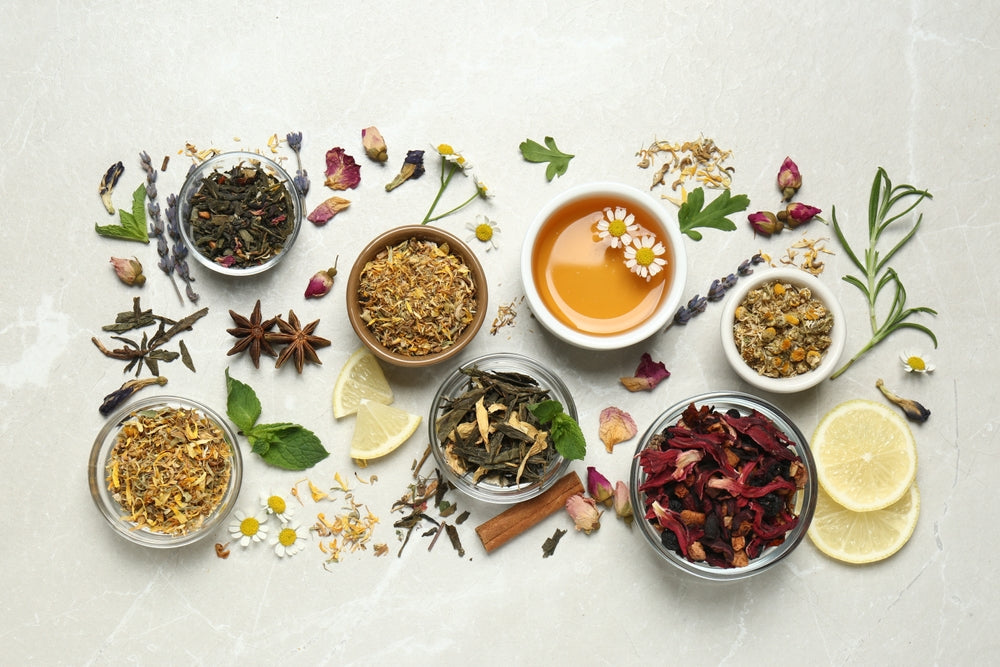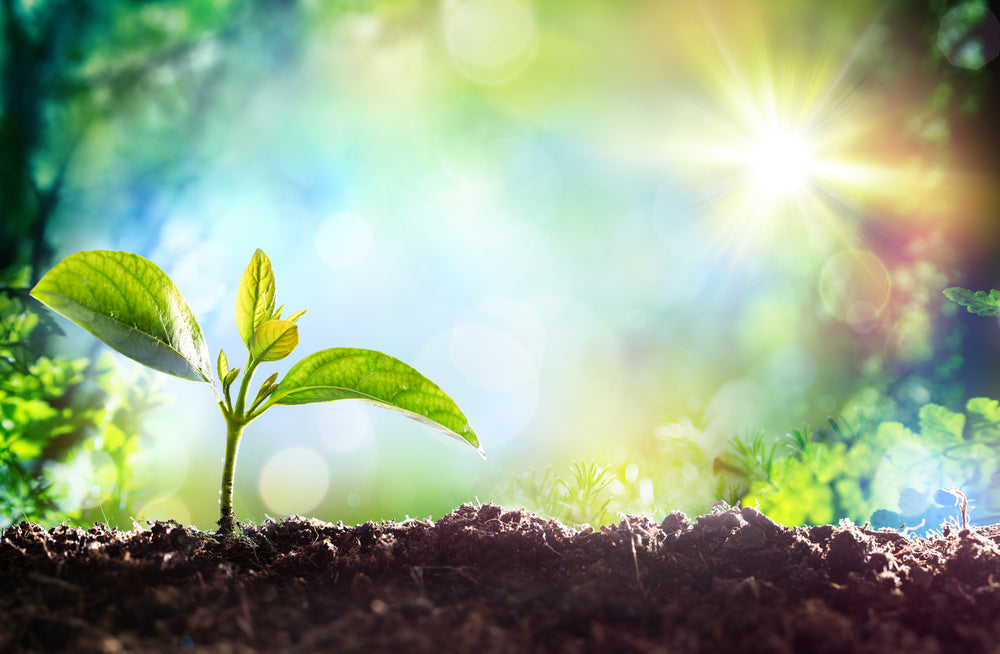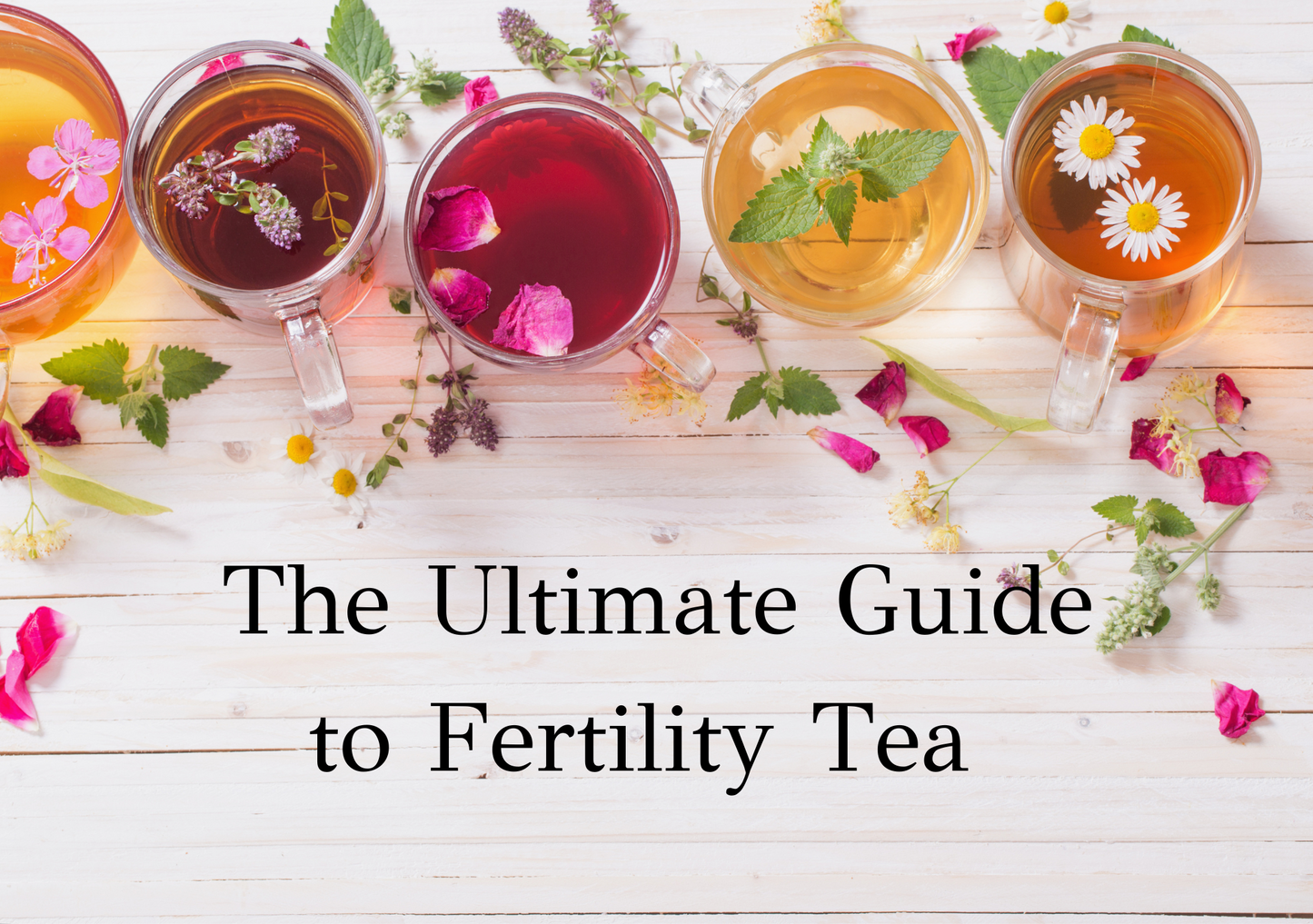
Discover the transformative power of fertility tea in our Ultimate Guide. Explore how this natural elixir nurtures your path to conception.
What is women's fertility tea?
Women's fertility tea is a specialized herbal beverage designed to address the unique needs of women who are trying to conceive. Crafted with a blend of carefully selected herbs, fertility tea aims to provide support for reproductive health and optimize fertility. By harnessing the potential benefits of specific herbs, fertility teas strive to regulate menstrual cycles, promote hormonal balance, enhance egg quality, and bolster overall reproductive function. These teas are crafted with the understanding that various factors can influence fertility, and they aim to provide a natural and holistic approach to support women on their fertility journey. With their combination of traditional wisdom and modern understanding, women's fertility teas offer a convenient and potentially beneficial option for those seeking to optimize their chances of conceiving.
Which tea is best for getting pregnant?
There are many fertility teas to explore on the market. Some of the most beneficial teas to look for in herbal fertility teas include:
Red Raspberry Leaf Tea:
Red raspberry leaf is often considered a popular choice for women trying to conceive. It is believed to benefit:
- Uterine Health: Red raspberry leaf tea is often believed to support uterine health by toning the uterus and improving its function. It is thought to strengthen the uterine muscles, potentially aiding in implantation and supporting a healthy pregnancy.
- Hormonal Balance: Red raspberry leaf tea is sometimes used to promote hormonal balance, which is essential for fertility. It may help regulate the menstrual cycle and support the production of reproductive hormones, potentially increasing the chances of conception.
- Nutrient Support: Red raspberry leaf tea contains various nutrients that are important for reproductive health, including vitamins C and E, calcium, iron, and magnesium. These nutrients may contribute to overall well-being and fertility.
- Relaxation and Stress Relief: Fertility can be influenced by stress levels. Red raspberry leaf tea is often considered a soothing and relaxing herbal infusion, which may help reduce stress and promote a more favorable environment for conception.
Red clover tea for fertility:
Red clover tea is often regarded as a herbal remedy that may support fertility in women. Some of the benefits of red clover tea for fertility include:
- Phytoestrogens: Red clover contains compounds known as isoflavones, including genistein and daidzein, which are classified as phytoestrogens. Phytoestrogens have a chemical structure similar to estrogen and may have mild estrogenic effects on the body. It is believed that these phytoestrogens in red clover may help regulate hormonal balance and support reproductive health.
- Hormonal Balance: Red clover is thought to have a positive impact on hormonal balance, which is essential for fertility. By potentially modulating estrogen levels in the body, red clover tea may help regulate the menstrual cycle and support overall reproductive function.
- Antioxidant Activity: Red clover contains antioxidants, such as isoflavones and flavonoids, which help protect cells from oxidative stress. By reducing oxidative damage, red clover tea may contribute to a healthier reproductive system.
- Blood Flow: Some proponents suggest that red clover tea may improve blood flow to the reproductive organs, including the uterus and ovaries. Improved blood flow may enhance the delivery of nutrients and support reproductive health.
Nettle tea for preconception:
Nettle tea, made from the leaves of the stinging nettle plant (Urtica dioica), is believed to have several potential benefits for fertility. Here are some potential benefits associated with nettle tea for fertility:
- Nutrient-rich: Nettle leaves are rich in nutrients, including vitamins A, C, and K, as well as minerals such as iron, calcium, and magnesium. These nutrients are essential for overall health and can support reproductive function.
- Blood Tonic: Nettle tea is often considered a blood tonic. It may support healthy blood circulation and contribute to optimal nutrient delivery to the reproductive organs, potentially enhancing fertility.
- Hormonal Balance: Nettle tea is thought to help balance hormones, which is crucial for fertility. It contains compounds that may support hormonal regulation and aid in maintaining a healthy menstrual cycle.
- Uterine Health: Nettle tea is believed to have a toning effect on the uterus. It may help strengthen and tone the uterine muscles, potentially supporting implantation and a healthy pregnancy.
- Detoxification: Nettle tea is considered to have detoxifying properties, promoting the elimination of waste products from the body. A healthy detoxification process can potentially contribute to optimal reproductive function.
Peppermint tea for fertility:
Peppermint tea is a popular herbal infusion known for its refreshing flavor and potential health benefits. Here are some general benefits associated with peppermint tea that could indirectly support fertility:
- Stress Relief: Peppermint tea has calming properties and may help reduce stress and anxiety. High-stress levels can interfere with fertility, so managing stress and promoting relaxation may indirectly support reproductive health.
- Digestive Health: Peppermint tea is often consumed to soothe digestive discomfort and promote healthy digestion. Good digestive health is important for nutrient absorption, which is crucial for overall well-being and fertility.
- Hormonal Balance: Some proponents suggest that peppermint tea may help balance hormones, including estrogen and progesterone. Hormonal balance is essential for reproductive health, including proper ovulation and menstruation.
- Antioxidant Activity: Peppermint tea contains antioxidants, such as rosmarinic acid and flavonoids, which can help protect cells from oxidative stress. A healthy cellular environment may indirectly support reproductive function.
Green tea for fertility? What’s the skinny on caffeine?
Green tea contains antioxidants and has been associated with various health benefits. Some studies suggest that green tea may have a positive impact on fertility by improving egg quality and supporting reproductive health. However, excessive consumption of green tea (more than 2-3 cups per day) has been linked to reduced fertility, so it's best to consume it in moderation.
Green tea is often regarded as a popular and beneficial beverage, but when it comes to fertility, the role of green tea and its caffeine content requires some consideration.
Green tea contains a moderate amount of caffeine, which is a stimulant that can affect the reproductive system. While moderate caffeine intake is generally considered safe for most people, excessive consumption of caffeine has been associated with fertility issues and may increase the time it takes to conceive.
Studies on the effects of caffeine on fertility have yielded mixed results. Some research suggests that high caffeine intake (more than 300 mg per day) may be associated with a higher risk of infertility, a longer time to conceive, and an increased risk of miscarriage. However, other studies have not found a significant association between moderate caffeine consumption and fertility problems.
If you're trying to conceive, it's generally advisable to limit your caffeine intake, including green tea. The American College of Obstetricians and Gynecologists (ACOG) recommends that women trying to conceive or who are pregnant should consume no more than 200 mg of caffeine per day, which is roughly equivalent to one 8-ounce cup of brewed green tea.
If you enjoy green tea and want to incorporate it into your routine while trying to conceive, you can opt for decaffeinated green tea, which has a significantly reduced caffeine content. However, keep in mind that decaffeinated green tea may still contain trace amounts of caffeine.
It's important to note that individual sensitivity to caffeine can vary, and some women may be more susceptible to its effects on fertility. If you have concerns about caffeine or are unsure about the amount that is safe for you, it's best to consult with a healthcare professional or a fertility specialist. They can provide personalized advice based on your specific circumstances and help you make informed decisions regarding your caffeine intake while trying to conceive.
Fertility Tea Side Effects
While fertility teas are generally considered safe when consumed in moderation, it's important to be aware of potential side effects. Here are some possible side effects that may be associated with fertility teas:
- Allergic Reactions: Some individuals may have allergies or sensitivities to certain herbs present in fertility teas. If you experience symptoms such as itching, hives, swelling, or difficulty breathing after consuming a fertility tea, discontinue use and seek medical attention.
- Digestive Issues: Some herbs found in fertility teas, such as peppermint or ginger, may have a soothing effect on the digestive system for most people. However, in some individuals, these herbs can cause gastrointestinal discomfort, including heartburn, stomach upset, or diarrhea.
- Hormonal Effects: Certain herbs present in fertility teas, like chasteberry (Vitex), may exert hormonal effects on the body. While this can be beneficial for balancing hormones in some individuals, it may have unintended effects or interact with certain medications. It's important to consult with a healthcare professional before using herbal teas if you have hormone-related conditions or are taking hormonal medications.
- Interactions with Medications: Some herbs found in fertility teas may interact with medications you are currently taking. For example, herbs like St. John's wort, licorice root, or dong quai can interfere with the effectiveness of certain medications or cause adverse effects. It's crucial to inform your healthcare provider about any herbal teas you are consuming to ensure they won't interfere with your prescribed medications.
Remember, individual responses to herbal teas can vary, and it's always advisable to consult with a healthcare professional or a qualified herbalist before incorporating fertility teas or any herbal remedies into your routine, especially if you have underlying health conditions, is taking medications, or are pregnant or breastfeeding. They can provide personalized advice based on your specific circumstances and guide you on the appropriate use of herbal teas
Do fertility teas really work?
The effectiveness of fertility teas can vary among individuals, and it's important to approach their use with realistic expectations. Fertility teas are typically made from a blend of herbs and are marketed as natural remedies to support reproductive health and enhance fertility. However, the scientific evidence supporting the effectiveness of fertility teas is limited and inconclusive.
While some herbs found in fertility teas have been traditionally used for their potential benefits on reproductive health, such as regulating menstrual cycles or supporting hormone balance, scientific studies on their efficacy are limited.
It's essential to remember that fertility is a complex matter influenced by various factors, including overall health, genetics, age, underlying conditions, and more. While incorporating fertility teas into a holistic approach that includes a healthy lifestyle, proper nutrition, stress management, and medical guidance may be beneficial for some individuals, it's crucial to seek professional advice and support.
Ultimately, the decision to use fertility teas is a personal one, and it's important to approach them as complementary additions to a comprehensive fertility plan rather than relying solely on their efficacy.
We would love to hear about your experiences with fertility tea! If you are looking for a fertility tea to try check out Organic Fertility Tea.
